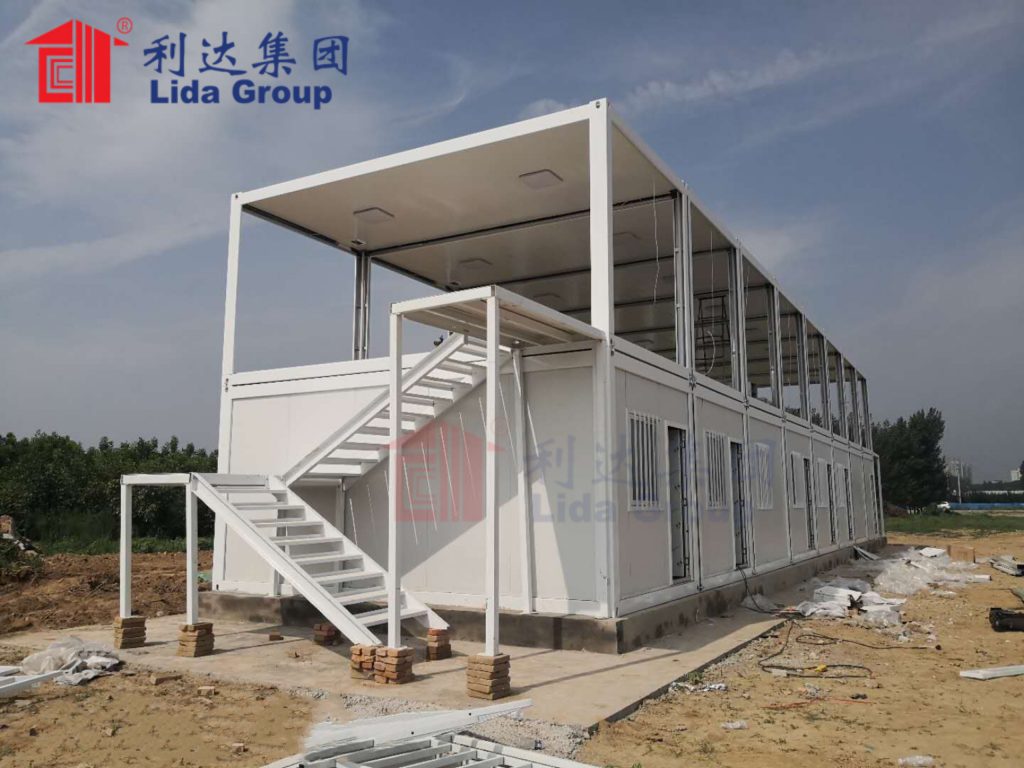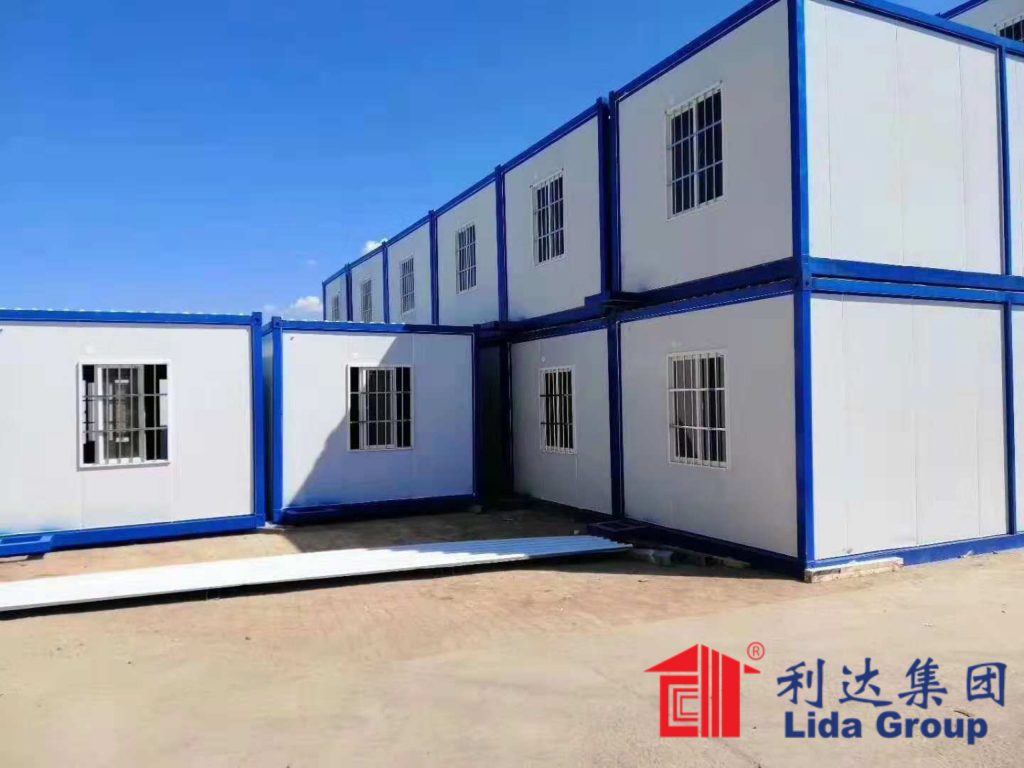Construction firm Lida Group has completed assembly of a prototype modular housing community utilizing nested multi-family homes built from stacked shipping containers combined with integrated renewable power and water treatment infrastructure. Located in a remote mining region of northern China, the development aims to validate an off-grid permanent housing solution for supporting populations living and working in isolated resource extraction areas globally.
In many developing nations’ undeveloped frontiers undergoing rapid mineral, oil and gas development, lack of permanent housing poses challenges retaining necessary workforces. Often projects occur where conventional home construction and connection to centralized utilities prove infeasible due to harsh climates, difficult terrain or vast distances from population centers. Temporary labor camps struggle meeting long-term family needs if projects operate for decades according to Lida Group management.
Their nested container home community design incorporates multi-level family units internally connected within exterior shells constructed by horizontally stacking multiple shipping container modules. Triple-stacked configurations provide up to three bedrooms, living areas and storage lofts within a compact 140m2 footprint suitable for smaller nuclear and extended families characteristic of remote mining communities according to sociological research.

Structurally, lower units nest within open floor plans of units above, supported by the shipping containers’ robust steel superstructure serving as load-bearing perimeter walls. Modular homes arranged in clusters promote neighborly community layouts while maximizing limited land space within the mountain valley development site according to architectural plans.
An innovative cogeneration renewable energy micro-grid powers the off-grid hamlet sustainably. Ground-mounted solar panel arrays, plus small-scale wind turbines generate electricity stored in communal battery banks. An anaerobic digester converts food and bio-waste into methane fueling generators only during prolonged seasonal overcast according to the energy management system.
A closed-loop gravity-fed water recycling system treats and replenishes all domestic water needs as well. A natural wetland filtration process cleans and oxygenates water, with ultraviolet disinfection ensuring potability before storage within the community’s four integrated 10,000 liter rainwater catchment cisterns. Greywater from showers, sinks and appliances flows to root zone plant beds purifying contaminants before returning to the wetland.

All renewable systems integrate within the development’s operational infrastructure housed within centrally located specially designed modular support structures. Training provided ensures local staff capacity to operate and maintain all customized off-grid utilities according to Lida Group technicians now overseeing the initial shakedown period. Surplus power even charges electric vehicles assisting with deliveries to outlying work sites.
Interiors feature fully insulated interior walls, energy star rated appliances, triple-glazed windows optimized for minimal thermal bridging and maximized natural lighting. Underfloor heating using waste geothermal heat from the digester promotes comfort. Touchscreen control panels allow residents managing climate, utilities and connecting to regional cellular networks according to customized smart home technologies.
Lida Group aims monitoring the prototype community over its first two years of occupation to evaluate durability, user satisfaction, energy/water efficiencies and integration with remote village services. Design refinements will address any issues prior commercializing the modular prefabricated housing solution worldwide wherever large isolated development projects require permanent workforce settlements according to development managers. Initial interest has come from partners in the Patagonian oilfields, Canadian diamonds mines and Australian coal mining regions according to statements.

Part of the goal involves establishing global product standards and export/import certification to ease regulatory approvals internationally. Mass produced standardized families of nested container modules aim delivering high quality homes at an affordable price-point. Future research may explore alternative renewable technologies such as hydrogen fuel cell integration according R&D directors.
With population growth and urbanization increasingly pressuring frontiers worldwide, the unique challenges of remote resource extraction regions requires innovation. Lida Group believes modular prefabricated construction combined with integrated renewable infrastructure can help support these isolated developmental settlements sustainably for generations to come according to leadership if prototype testing verifies long-term viability and occupant satisfaction within the prototype community now operational.

Related news
-
Lida Group designs flat-packed container bunkhouses integrated with communal spaces for easy transport and assembly of temporary laborers' accommodations near remote construction sites.
2024-05-22 11:06:35
-
NGO works with Lida Group to provide portable modular container classrooms, workshops and clinics featuring versatile components for flexible education zones in disaster relief projects.
2024-05-22 10:53:45
-
Lida Group pilot tests prototype vertical livestock steel structural building system integrating rooftop apiaries to broaden commercial opportunities for independent multi-generational cattle and sheep operations.
2024-05-20 17:08:40
contact us
- Tel: +86-532-88966982
- Whatsapp: +86-13793209022
- E-mail: sales@lidajituan.com


